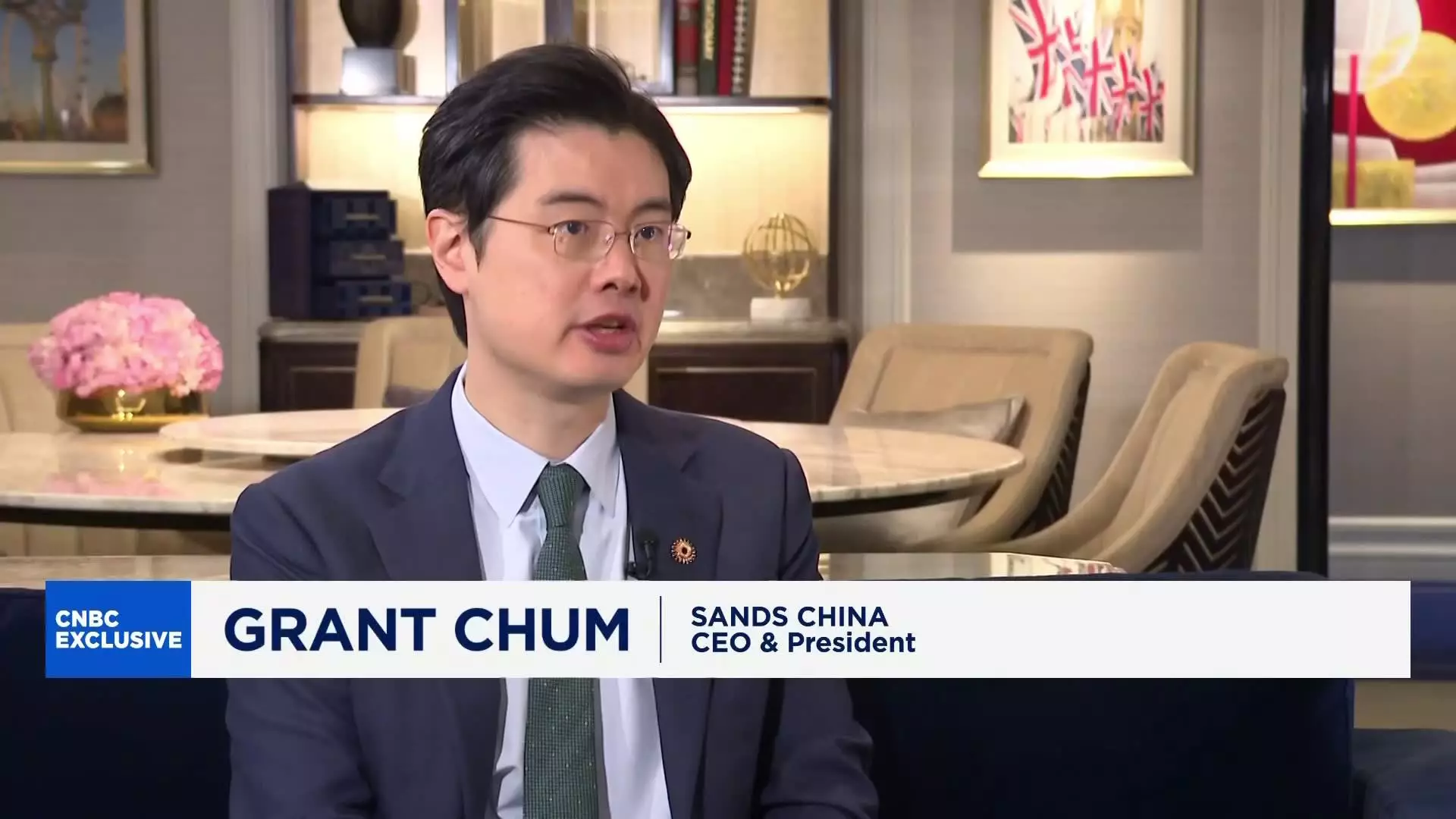The transformation of Macao from a gaming-centric economy to a multifaceted entertainment and sports destination is gaining momentum, signaling a significant shift in the region’s development strategy. With Las Vegas-style resorts and casinos dominating the skyline for decades, Macao’s diversification efforts are emerging as a crucial move amid changing market dynamics and increasing global competition. The recent discourse surrounding these developments, particularly during Chinese President Xi Jinping’s visit to the region, sheds light on the ambitions and strategies being put in place to navigate this transition.
One of the most exciting developments in Macao’s transformation is the announcement of a multi-year partnership between Sands China and the National Basketball Association (NBA). CEO Grant Chum emphasized the importance of this collaboration, highlighting that two pre-season NBA games are scheduled to be held in Macao starting in 2025. The decision to host these high-profile games is not just a fleeting event but a long-term vision to establish Macao as a prominent venue for international sporting events.
Chum articulated, “We believe that a multi-year partnership […] is going to really bolster Macao’s positioning.” His insights illustrate the broader strategy to align Macao with global sporting events, leveraging the NBA’s popularity to attract tourists and enhance the city’s brand. Such collaborations not only showcase Macao’s potential as a sports destination but also signify a commitment to elevating the overall entertainment landscape, which aligns with President Xi’s vision for the region.
A key element of Macao’s reinvention is the significant investment in non-gaming sectors. Chum announced Sands China’s pledge to invest $4.5 billion within the city by 2032, with a notable 90% directed towards non-gaming projects. This focus on diversification is crucial as it counters the region’s historical dependency on gambling revenues, which have been under pressure due to changing consumer habits and external economic factors.
Macao’s six gaming operators collectively promised a staggering $15 billion to support developments beyond gambling, aiming to create a more resilient economic framework. The prevailing sentiment among industry leaders reflects a sense of urgency, as they recognize the need for rapid adaptation in a world increasingly wary of over-reliance on gaming.
The remodeling of significant infrastructure is essential to support Macao’s ambition to become a premier destination for sports and entertainment. The Venetian Arena’s recent $200 million renovation speaks volumes about Sands China’s commitment to enhancing visitor experiences. Rebranded from the Cotai Arena, this facility will not only cater to major sporting events like the upcoming NBA games but also host live concerts and conventions, expanding its appeal to diverse audiences.
With a capacity of 14,000, the arena is set to play a pivotal role in attracting international events and diversifying the types of entertainment available in Macao. Chum’s assertion that these developments will build Macao’s brand equity reflects a broader strategy to market the city as an all-encompassing entertainment hub.
Despite these promising initiatives, the transition journey is fraught with challenges. As President Xi noted during his recent visit, Macao must keep up with evolving trends and demonstrate innovation in its approach to economic development. This call for reform and courage in the face of change necessitates proactive measures to attract foreign talent and investment further, which Allan Zeman, chairman of Wynn Macao, reiterates.
Moreover, while Macao’s gaming revenue has rebounded to about 80% of pre-pandemic levels and tourist arrivals have reached their apex, the region’s reliance on historical strengths must be critically reassessed. The recent NBA deal, marking the return of pre-season games to China after years of absence, can be seen as a pivotal stepping stone. However, it also underscores the need for Macao to cultivate a diverse portfolio of attractions that can sustain its economy beyond gambling.
Macao stands at a crucial juncture, with ambitious goals to establish itself as a center of sports and entertainment. Through strategic partnerships, significant investments in infrastructure, and a commitment to diversification, the city aims to redefine its identity and economic future. As the unfolding narrative continues, the response to President Xi’s call for adaptation will likely shape Macao’s trajectory in the years to come.


Leave a Reply